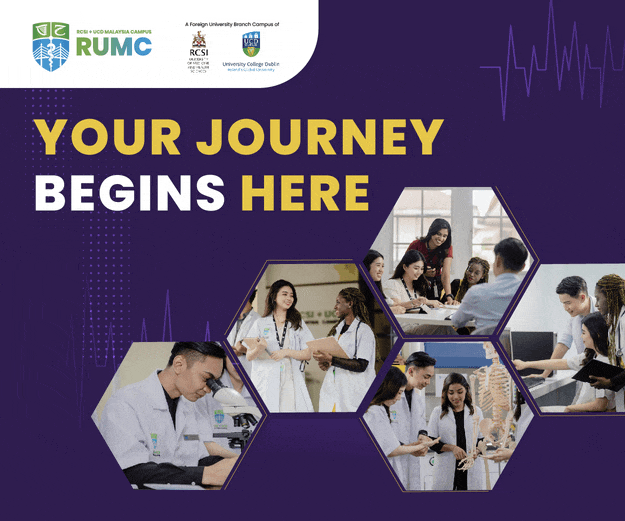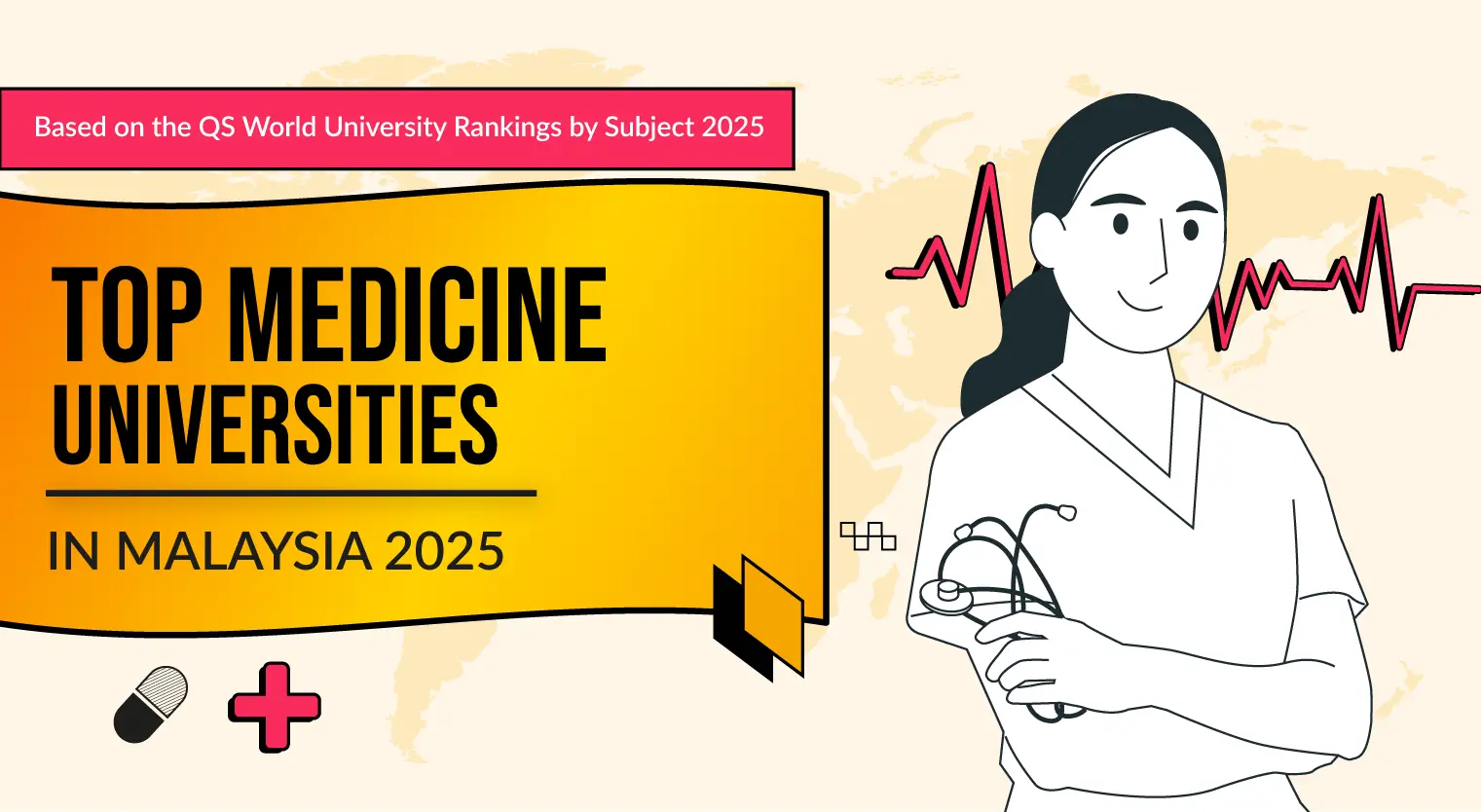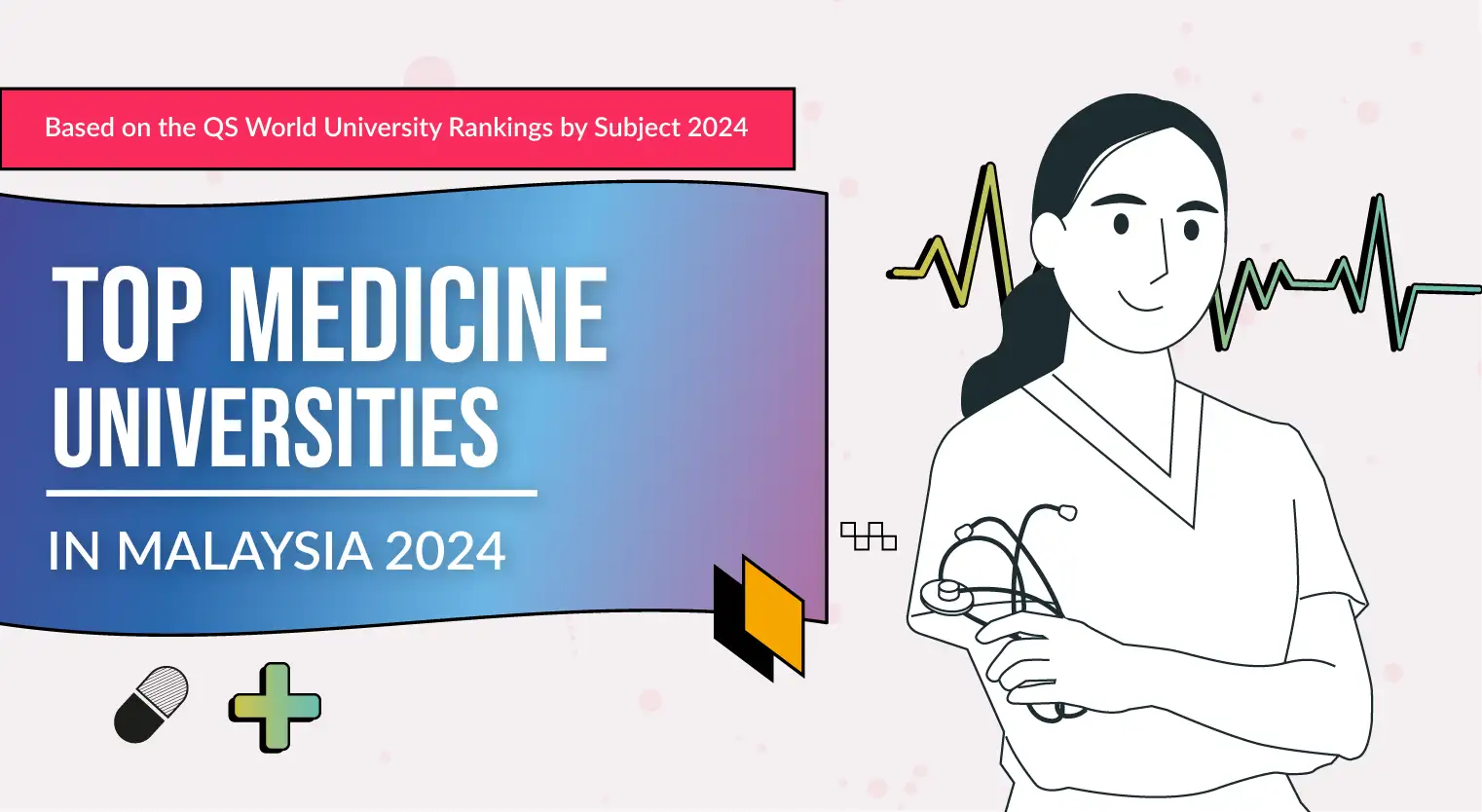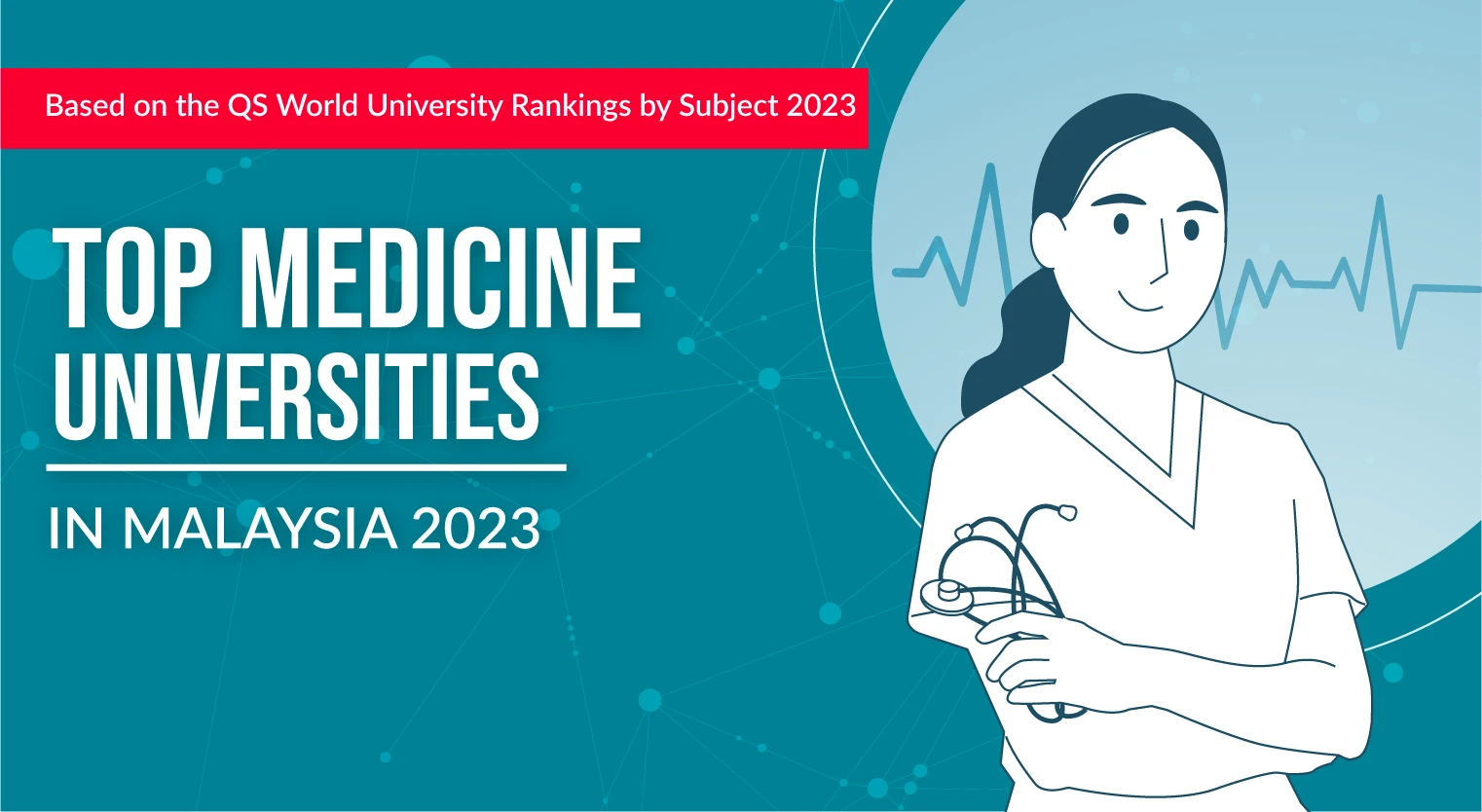How To Be A Doctor in Malaysia After SPM
What does it take to be a doctor in Malaysia? Here’s a guide on how you can be a medical officer in Malaysia from SPM.
Updated 26 Feb 2022

Have you always dreamed of donning the white coat and strutting your stuff as a doctor? Are you constantly in awe of the medical professionals who braved a health crisis and feel that you have what it takes to take on the challenge? Perhaps you’d like to put your excellent knowledge in science to good use.
If yes, then pursuing a medical degree and being a doctor might suit you!
So, what can you do to hold the noble title of a doctor? We’ve prepared a step-by-step guide on how you can qualify to be a doctor in Malaysia from SPM.
Step #1. Meet the requirements at SPM level
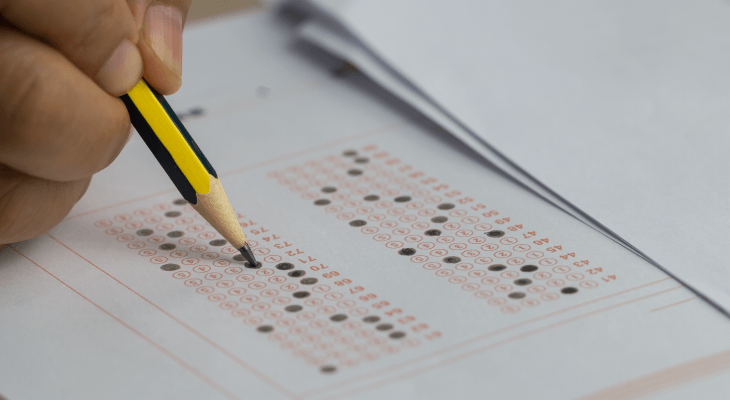
To study medicine and be a doctor in Malaysia, you must first meet the entry requirements set for SPM level by the Malaysian Medical Council (MMC).
You’ll need to have at least 5Bs at SPM (or O Levels / IGCSE) including:
- Biology, and
- Chemistry, and
- Physics, and
- Mathematics or Additional Mathematics, and
- One other subject
In addition, you must also have a pass in Bahasa Melayu and Sejarah in SPM. This is to fulfil the requirements of working in the government for your housemanship later on.
What if you don’t have 5Bs in the required subjects at SPM level or equivalent? Perhaps you didn’t do well in physics or mathematics, or didn’t take one of the two subjects thinking that they’re not relevant to medicine. Is there still a chance for you to pursue a medical degree?
Well, one option for you is to pursue pre-university programmes — specifically A Levels or STPM— and meet the requirements at a higher academic level.
However, this is not the same with Foundation in Science, Australian Matriculation (e.g. SACEi, AUSMAT) or Monash University Foundation Year (MUFY) — you’ll still need 5Bs in SPM or equivalent in the required subjects, even with good grades in these qualifications.
Step #2. Complete a pre-university or foundation programme

When it comes to pursuing a degree in medicine, you’re recommended to study a pre-university programme (A Levels, STPM, Matrikulasi, SACEi) or pursue a Foundation in Science.
The academic requirements at pre-university or foundation level are as follows:
- A Levels: BBB, ABC or AAC in Biology, and Chemistry, and Physics or Mathematics
- STPM: BBB, ABC or AAC in Biology, and Chemistry, and Physics or Mathematics
- Australian Matriculation (e.g. SACEi, WACE): 3Bs in Biology, and Chemistry, and Physics or Mathematics; or ATAR 80 including an average of 80% in Biology, and Chemistry, and Physics or Mathematics
- Foundation in Science / Matrikulasi: CGPA of 3.0 in Biology, and Chemistry, and Physics or Mathematics, and all subjects must be at least a C (GPA 2.0); and 5Bs in Biology, Chemistry, Physics, Mathematics or Additional Mathematics, and one other subject in SPM or equivalent
Completing any one of the qualifications above will allow you to pursue an MBBS degree.
Step #3. Complete a recognised medical degree

Once you complete your pre-university or foundation in science and meet the entry requirements, you’ll be eligible to pursue a Degree in Medicine.
In order to be a registered medical officer in Malaysia, you must pursue a medical degree that is recognised by the Malaysian Medical Council, regardless whether your degree is from Malaysia or overseas. Otherwise, you may risk not being able to practise medicine in Malaysia. Accreditation also indicates that the institution and programme have met the national standards and guidelines in accordance with the council.
Most medical degrees take 5 years to complete. During your medical studies, you will first focus on the theoretical basics of medical science in the first 2 years. Thereafter, you will shift to clinical training where you’ll gain hands-on experience with patients through clinical rotations at hospitals and health clinics.
Once you’ve completed your medical degree, you can move on to the next step — housemanship.

Step #4. Complete your housemanship

Housemanship (or medical internship) refers to the compulsory service where medical graduates undergo clinical training at hospitals before they can register as a practising doctor. In Malaysia, medical graduates must undertake housemanship for a period of 2 years at government hospitals.
The housemanship works on a rotating structure where you will be posted to 6 different departments for a duration of 4 months each. The first 5 postings are in the core disciplines of internal medicine, paediatrics, surgery, obstetrics and gynaecology, and orthopaedics. The final posting is in an elective discipline of your choice, with options including emergency medicine, anaesthesia, primary care and psychiatry.
The postings in the various disciplines will allow you to gain substantial experience in managing patients with different illnesses. Your tasks will include assessing patients, managing patient care, doing ward rounds, performing simple procedures under supervision and managing discharge.
As a houseman, you are considered a provisionally registered medical professional.
Apply for university with EduAdvisor
Secure scholarships and more when you apply to any of our 100+ partner universities.
Start nowStep #5. Complete full registration as a Medical Officer

When you are on your final posting, you will be able to apply for full registration as a medical officer with MMC.
Once your application is approved, you will be a fully registered medical officer and use the abbreviation "Dr." in front of your name.
Step #6. Complete 2 years of compulsory service with the government

Upon full registration as a medical officer, you are required to undergo 2 years of compulsory service with the government. This compulsory service must be done at hospitals and clinics under the Ministry of Health Malaysia.
There is a possibility of applying for a reduction in the length of mandatory service. You must, however, have served in the public sector for at least 12 months from the date of your full registration.

Step #7. To be a specialist, you'll need to complete postgraduate study and gain practical experience
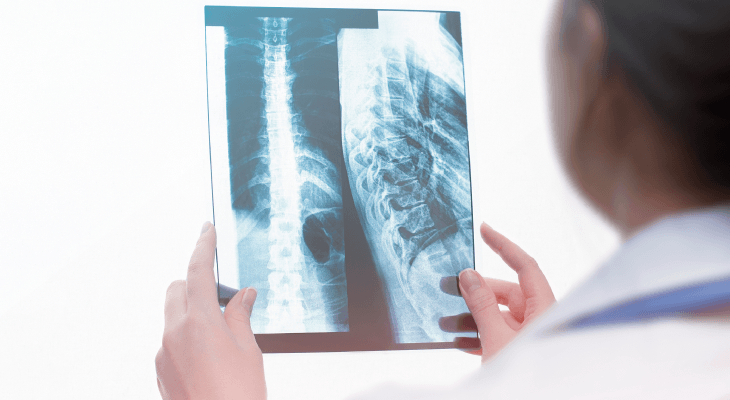
If you wish to be a specialist (e.g. neurologist, cardiologist, gynaecologist, paediatrician), further education and training are required.
Most newly qualified medical officers will first work for several years to gain experience. During this time, you can request to be posted in specific departments or get a specialist to be your mentor. That way, you will be able to familiarise yourself with the ins and outs of the department and see if it fits you.
Once you’ve decided which field you’d like to specialise in, you can pursue your postgraduate studies which can take 4 - 5 years to complete. In addition, you’ll also need to undergo 2 - 4 years of supervised training to be a specialist, depending on the field.
Upon completing the various criteria of being a specialist (postgraduate education, training, work experience), you will then be able to register as a specialist with MMC.
There you have it! We hope this has shed some light on the pathway of being a doctor after SPM. Although there will be challenges on the long and windy road, rest assured that these hurdles will equip you with the dedication, resilience and integrity that is required of a medical professional.


